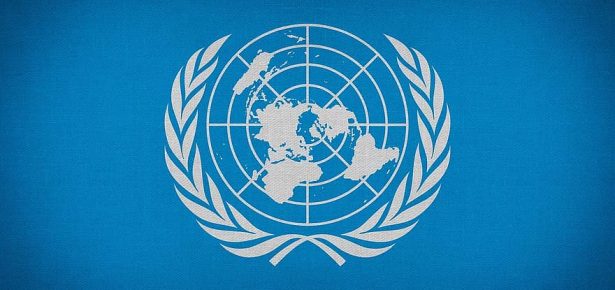
Some of the permanent members of the UN Security Council periodically use their veto (i.e., negative vote)—or threat of veto—to stop resolutions aimed at preventing or stopping the commission of core international crimes like genocide, war crimes and crimes against humanity. One sees this regarding Syria, for example, where chemical weapons inspections that would have attributed responsibility to the side using the weapons were blocked multiple times by vetoes. One saw this regarding Darfur, where peacekeeping measures and sanctions were weakened, including sanctions against the Government of Sudan while its armed forces and the Janjaweed militia committed atrocity crimes alleged to include genocide.
It is more than high time to question this state of affairs. Can this really be how the UN Charter is intended to be read—to grant permanent members of the Security Council the ability to indirectly enable, through veto use, the continued commission of atrocity crimes?
That nearly two-thirds of UN Member States have joined initiatives supporting voluntary veto restraint—that is, that the permanent members of the Security Council should voluntarily refrain from using their veto in the face of atrocity crimes—shows widespread recognition that the way the veto is being used is a real problem.
Yet, this groundbreaking new book, Existing Legal Limits to Security Council Veto Power in the Face of Atrocity Crimes, shows that the law actually supports a stronger stance: there exist hard law legal obligations against veto use while there is ongoing genocide, crimes against humanity, and/or war crimes, or a serious risk of these crimes occurring. The author presents three independent arguments based on existing law:
The first argument is based on jus cogens, the highest level of international law. When the veto is used in the face of such crimes, it is at minimum inconsistent with jus cogens. More aggressively formulated, the permanent member is facilitating jus cogens violations, and the state at issue is breaching duties of state responsibility.
The second arguments is based on the UN Charter, which requires the Security Council to act in accordance with the UN’s “Purposes and Principles,” including respecting international law, human rights, and the obligation of good faith, and mandating cooperation in solving international problems of a humanitarian character. The book presents a strong case that current veto use and veto threats are far out of line with these Charter requirements—to which Security Council permanent members are necessarily bound; their power was created by the Charter, so necessarily have no power to exceed its limits.
The third argument it based on certain obligations under foundational treaties such as the obligation to “prevent” genocide under the Genocide Convention, as well as the obligation to “ensure” respect for the Geneva Conventions found in those conventions. When the veto is used in the face of ongoing genocide or war crimes, or the serious risk of the crimes, the vetoing permanent members is acting in disregard of these convention obligations.
While those arguments are designed for legal scholars, the narratives about the use of the veto when atrocities are occurring is readily accessible to any reader who cares about the international community’s imperative to do much better in the face of atrocity crimes. The vetoes delayed the end of the apartheid era in South Africa; veto threats furthered inaction during the Rwanda genocide; and the reason there is and has been inaction related to Darfur, Sri Lanka, and Myanmar despite staggering atrocities all has to do with the veto power. Russia has used the veto a staggering fourteen times to block measures designed to prevent atrocity crimes or further accountability for crimes in Syria, and the US periodically uses its veto related to Israel.
The book culminates in a plea that UN Member States use legal arguments in statements at the UN in opposition to such veto use. The General Assembly should also issue a resolution recognizing that existing law limits the use of the veto in the face of atrocity crimes, and request the International Court of Justice to render an advisory opinion on this legal issue.
The book presents a persuasive case that the UN will continue to fail populations in peril until this pressing problem—at the heart of UN inaction when the worst atrocities are occurring—is addressed. Professor Trahan is Clinical Professor, NYU Center for Global Affairs and a prolific scholar in areas of international criminal justice.
Latest Comments
Have your say!